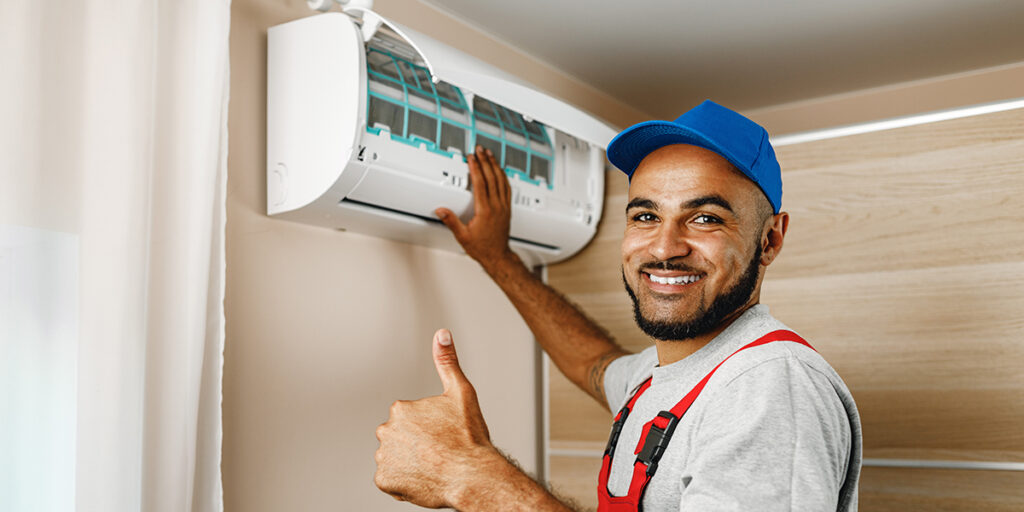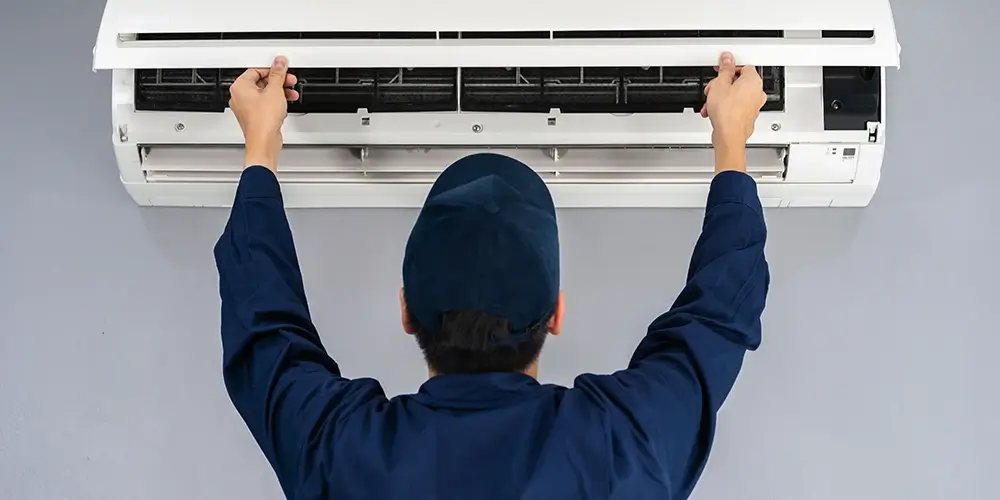The Basic Principles Of Ac Air Conditioner Repair
The Basic Principles Of Ac Air Conditioner Repair
Blog Article
The 7-Minute Rule for Ac Air Conditioner Repair
Fix Air Conditioner: Specialist Cooling System Repair Ensures Your Home Stays Comfy Throughout The Year
Kinds Of Air Conditioner Systems
When dealing with a/c repair work, understanding the kind of a/c system you're handling can save time, money, and stress. Ever wondered why some systems cool a room faster than others? Or why specific systems seem to break down more frequently? Let's peel back the layers.
Central Air Conditioning
The 5-Minute Rule for Air Conditioning Repair Near Me
Think of a cool breeze streaming through a whole house, whispering convenience into every corner. Central air conditioning systems do precisely that. They utilize a network of ducts to disperse cooled air, relying on a compressor and condenser outside, coupled with an evaporator coil inside. When this complex monster fails, identifying the problem can be like discovering a needle in a haystack.
Split Systems

Split systems are a popular option for lots of homes-- part indoor unit, part outside compressor. They use flexibility and performance, however their dual nature implies repair work can include either element. Have you ever heard a strange sound outside your home only to find the indoor system isn't cooling? That's a traditional indication of a split system glitch.
The Ultimate Guide To Ac Air Conditioner Repair
Window Units
These compact warriors fight summer heat by fitting comfortably into a window frame. They integrate all components into a single box. Their simpleness typically implies fewer repair work headaches, but neglecting filters or enabling debris accumulation can result in decreased efficiency or breakdowns.
Ductless Mini-Splits
5 Easy Facts About Air Conditioning Repair Explained
Ductless systems bypass ductwork totally, making them perfect for homes without existing ventilation. They're peaceful, effective, and surprisingly resistant. Yet, when repairs are required, professionals should be skilled at managing refrigerant lines and electrical connections-- no small feat.
Quick Referral Table
| Type | Key Features | Common Repair Work Issues |
|---|---|---|
| Central Air | Ductwork, whole-house cooling | Duct leaks, compressor failure |
| Split System | Indoor & & outdoor systems | Refrigerant leaks, fan motor issues |
| Window Unit | All-in-one, simple setup | Filthy filters, electrical faults |
| Ductless Mini-Split | No ducts, zoned cooling | Line leaks, sensing unit breakdowns |
What Does Air Conditioning Repair Mean?
Unraveling one of the most Regular AC Problems
Have you ever questioned why your a/c all of a sudden stops cooling during a sweltering afternoon? One typical offender is a filthy or clogged air filter. This tricky villain limits air flow, requiring your system to work overtime, which not just lowers efficiency but can also lead to early breakdowns. Think of trying to breathe through a scarf taken in dust-- it's tiring!
Another frequent hiccup is refrigerant leaks. These undetectable leakages do not simply decrease cooling power but can also damage the compressor, the heart of your AC unit. How frequently do you look for unusual hissing sounds or ice formation on the coils? Capturing these indications early can conserve you from expensive repair work down the line.
Beyond the Basics: Lesser-Known Issues
The 7-Minute Rule for Air Conditioning Repair
Sometimes, the thermostat itself is the troublemaker. Miscalibrated or malfunctioning thermostats send blended signals, causing the air conditioning to cycle erratically. Ever knowledgeable your a/c turning on and off in quick succession? That's called short cycling, a sneaky performance drainer that can wear check here components faster than you 'd expect.
Electrical issues, such as worn circuitry or a malfunctioning capacitor, might hide underneath the surface area. AC Repair Near Me. These frequently manifest as AC units stopping working to start or suddenly closing down. A professional eye understands to check these elements with accuracy tools, something a casual look will not expose
Professional Tips for Diagnosing Common Air Conditioner Problems
Not known Factual Statements About Air Conditioner Repair Near Me
- Inspect and change air filters regularly-- every 1 to 3 months depending upon usage and environment.
- Listen for uncommon sounds like rattling or buzzing that might signal loose parts or electrical faults.
- Inspect the outside system for debris or obstructions that impede airflow and cause overheating.
- Try to find frost buildup on evaporator coils, a hint towards refrigerant problems or airflow restrictions.
- Evaluate the thermostat settings and recalibrate if the temperature readings feel off.
Quick Referral Table: Manifestation & & Probable Causes

| Symptom | Probable Cause | Specialist Suggestion |
|---|---|---|
| Warm air blowing | Low refrigerant or unclean coils | Clean coils and look for leakages immediately |
| Short cycling | Thermostat problems or extra-large unit | Adjust thermostat settings and speak with sizing standards |
| System will not begin | Electrical faults or capacitor failure | Test wiring and replace capacitors as needed |
| Water leak | Obstructed drain line or frozen evaporator | Clear drain lines and check for coil icing |
DO IT YOURSELF Air Conditioner Maintenance Tips
Some Known Questions About Repair Air Conditioner Near Me.
Ever discovered your ac system sputtering like an old engine on a hot summer season day? Overlooking subtle signs often indicates more than just a sweaty afternoon-- it's a prelude to unanticipated air conditioner repair expenses. What if you could catch those whispers before they turn into wails? Routine DIY maintenance can be your very first line of defense.
Simple Steps to Keep Your Air Conditioner Running Smoothly
The 4-Minute Rule for Ac Repair
- Clean or Change Filters: A clogged up filter resembles trying to breathe through a headscarf. Every 1-3 months, inspect and switch out your filters. It improves airflow and efficiency, avoiding compressor stress.
- Examine the Condenser Coils: Dust and debris function as invisible blankets smothering your unit's cooling power. Carefully brush or vacuum the coils, but prevent extreme chemicals that might deteriorate the metal.
- Check the Drain Line: When was the last time you glanced at your drain pan? A stopped up drain can cause water leakages and foster mold growth. Flushing it with a vinegar solution monthly keeps the flow clear.
- Seal and Insulate: Are your ductworks whispering leaks? Sealing spaces with mastic or foil tape enhances efficiency and minimize uneven cooling.
Pro Tips Beyond the Fundamentals
- Measure your system's voltage to capture subtle electrical wear before it sparks big problems.
- Listen for unusual hums or rattles-- these acoustic breadcrumbs typically signal loose parts or failing motors.
- Keep outside systems shaded but make sure a minimum of 2 feet of clearance around them for optimum air flow.
Ask yourself: Are you hearing your AC's quiet SOS or just awaiting it to shriek? Requiring time for DO IT YOURSELF a/c maintenance transforms reactive repair into proactive care, saving sweat, tension, and yes, cash.
Our Ac Air Conditioner Repair Ideas
Why Knowledge in A/c Repair Work Matters
Envision this: your air conditioner system sputters and groans during a scorching afternoon, leaving you sweltering inside your home. Would you rely on a novice fumbling with fragile parts, or would you seek the peace of mind of a expert a/c specialist!.?.!? The complexities of modern air conditioning systems demand accuracy and experience. A small miscalculation can intensify a small breakdown into a costly disaster.
How Air Conditioning Repair can Save You Time, Stress, and Money.
Hidden Complexities Behind the Cool Breeze
Lots of undervalue the layers hidden beneath the smooth outside of an AC system - Air Conditioning Repair. From refrigerant leaks that quietly drain pipes effectiveness to defective thermostats that misread temperatures, these concerns require more than a basic toolkit. Professionals have a keen eye for identifying problems that average homeowners ignore
Important Tips for Selecting the Right Service Technician
Examine This Report on Ac Air Conditioner Repair
- Certification and Training: Validate qualifications; a technician trained in the most recent a/c technologies is vital.
- Experience with Specific Systems: Not all a/c systems are produced equal; find somebody knowledgeable about your design's quirks.
- Diagnostic Approach: Knowledgeable technicians use sophisticated tools-- like electronic leakage detectors and thermal imaging-- to pinpoint covert faults.
What to Expect from a Pro's Diagnostic Process
| Step | Function | Expert Insight |
|---|---|---|
| Visual Examination | Identify obvious wear or damage | Try to find corrosion or unusual sounds-- an indicator typically ignored |
| Pressure Testing | Identify refrigerant leakages | Subtle pressure drops can hint at micro leakages invisible to the naked eye |
| Electrical Checking | Make sure circuit stability | Loose connections can imitate severe mechanical failures |
How Repair Air Conditioner Near Me can Save You Time, Stress, and Money.
Why Do It Yourself Frequently Falls Short
Tempting as it is to tinker with your AC unit, do it yourself fixes regularly miss out on the root cause. Topping off refrigerant might temporarily cool your area but neglects leakages that get worse over time. Professional service technicians do not just spot symptoms; they pursue the underlying mechanical and electrical faults that sap performance.
How Ac Repair can Save You Time, Stress, and Money.
Concerns to Ask Before Employing
- What diagnostic tools do you utilize to determine issues?
- Can you discuss the repair work procedure and anticipated outcomes?
- Are you acquainted with the refrigerants suitable with my unit?
- Do you follow security procedures for dealing with electrical elements?